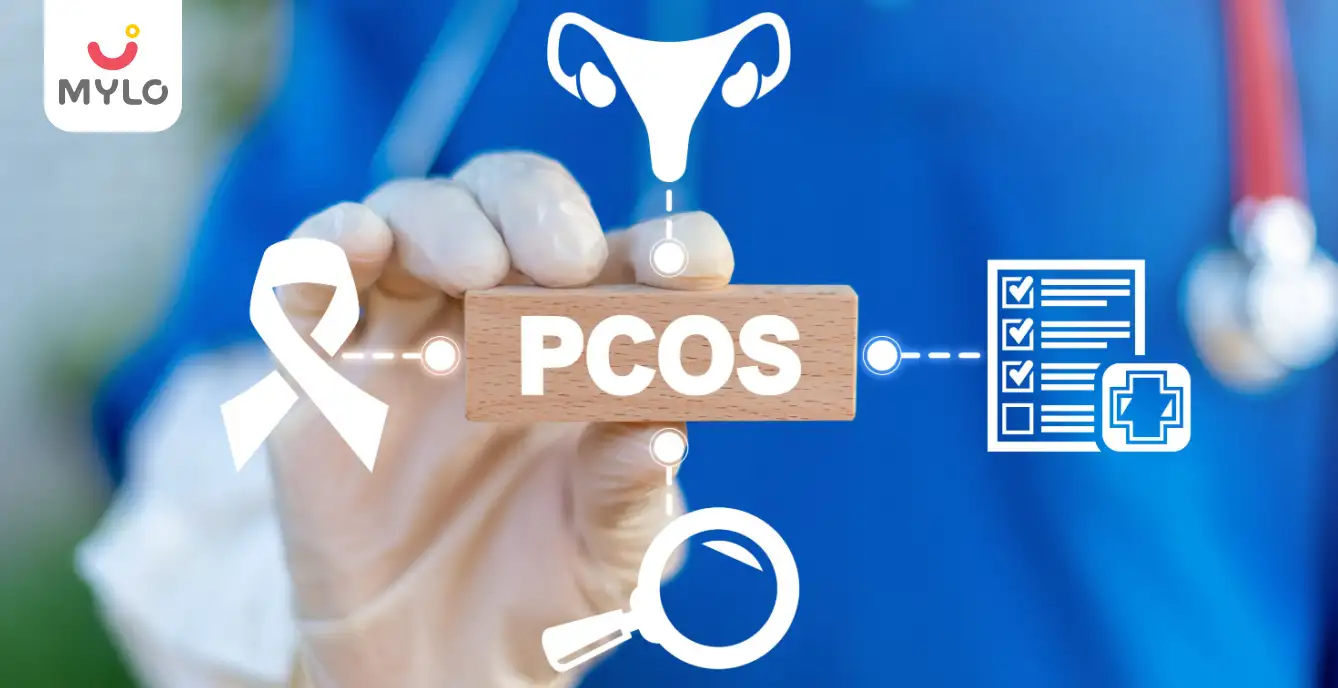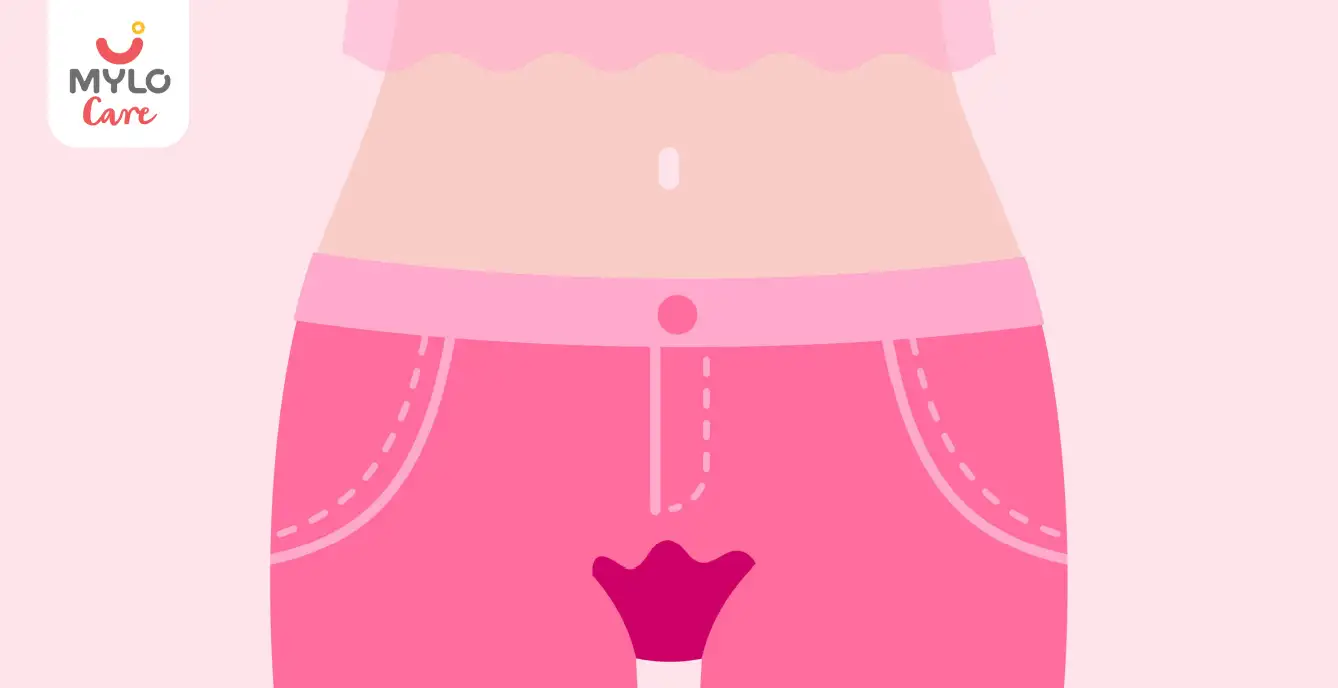Home

PCOS & PCOD

PCOS and Pregnancy: How to Manage PCOS on the Path to Parenthood
In this Article

PCOS & PCOD
PCOS and Pregnancy: How to Manage PCOS on the Path to Parenthood
Updated on 20 December 2023



Medically Reviewed by
Dr. Shruti Tanwar
C-section & gynae problems - MBBS| MS (OBS & Gynae)
View Profile

Polycystic Ovary Syndrome (PCOS) is a hormonal disorder that affects many women of reproductive age. One of the concerns associated with PCOS is its impact on fertility and the ability to conceive. However, with proper management and care, women with PCOS can still achieve a healthy pregnancy. In this article, we will explore the link between PCOS and pregnancy and discuss strategies to manage PCOS on the path to parenthood.
How to Detect Pregnancy with PCOS?
PCOS is a hormonal disorder that affects many women of reproductive age. One of the challenges for women with PCOS is detecting pregnancy. PCOS can cause irregular periods, which can make it difficult to determine if you are pregnant or experiencing another PCOS symptom. However, there are several signs that can help you determine the difference between PCOS and pregnancy symptoms.
One of the most common signs of pregnancy is a missed period. However, for women with PCOS, this can be misleading since irregular periods are a hallmark of the condition. Therefore, it is essential to look for other signs of pregnancy with PCOS, such as breast tenderness, fatigue, and nausea.
Additionally, taking a home pregnancy test can provide a definitive answer. These tests detect the presence of human chorionic gonadotropin (hCG), a hormone produced during pregnancy, in your urine.
If you suspect you may be pregnant but are unsure due to your PCOS symptoms, it is best to consult with your healthcare provider. They can perform a blood test to measure the levels of hCG in your body, which can provide a more accurate confirmation of pregnancy.
Does PCOS Affect Pregnancy?
PCOS can have an impact on pregnancy. PCOS is associated with an increased risk of certain pregnancy complications, including gestational diabetes, preeclampsia, and preterm birth. As a result, it is important for women to understand what precautions to take during pregnancy with PCOS.
These risks can be managed through regular prenatal care, a healthy lifestyle, and monitoring of blood sugar levels. It is essential for women with PCOS to work closely with their healthcare provider throughout their pregnancy to ensure a healthy outcome for both mother and baby.
What are Some Common PCOS Pregnancy Complications?
Pregnancy with PCOS can present some unique challenges and potential complications. Understanding these risks can help women with PCOS take necessary precautions and seek appropriate medical care.
1. Gestational Diabetes
One common complication of PCOS during pregnancy is gestational diabetes. Women with PCOS have an increased risk of developing gestational diabetes due to insulin resistance. This condition can affect the health of the baby and the mother if not properly managed. Regular monitoring of blood sugar levels, a healthy diet, and exercise can help control gestational diabetes.
2. Preecalmpsia
Another potential complication is preeclampsia, a condition characterized by high blood pressure and damage to organs such as the liver and kidneys. Women with PCOS have a higher risk of developing preeclampsia during pregnancy. Regular prenatal check-ups, monitoring of blood pressure, and early detection of any signs or symptoms can help manage this condition.
3. Preterm Birth
Preterm birth is also more common in women with PCOS. Preterm birth refers to the delivery of the baby before 37 weeks of gestation. It can pose risks to the baby's health and development. Close monitoring during pregnancy and early intervention can help reduce the risk of preterm birth.
What Precautions to Take During Pregnancy with PCOS?
Taking certain precautions during pregnancy can help manage PCOS pregnancy complications. Here are some essential precautions to consider if you have PCOS and are pregnant or planning to conceive:
1. Seek regular prenatal care
Regular check-ups with your healthcare provider are crucial for monitoring the progress of your pregnancy and addressing any potential complications.
2. Maintain a healthy lifestyle
Eating a balanced diet, engaging in regular exercise, and managing stress can help control PCOS symptoms and reduce the risk of pregnancy complications.
3. Manage insulin resistance
If you have insulin resistance, your healthcare provider may recommend medication or lifestyle modifications to help regulate your blood sugar levels during pregnancy.
4. Monitor blood pressure
Regular monitoring of blood pressure is essential to detect any signs of preeclampsia early. If necessary, your healthcare provider may recommend medication or other interventions to manage high blood pressure.
5. Stay informed and connected
Educate yourself, join support groups, and seek guidance from healthcare professionals who specialize in managing pregnancy and PCOS. Sharing your experiences with others who have gone through similar journeys can provide valuable support and advice.
By taking these precautions, you can optimize your chances of having a healthy pregnancy and minimize the potential risks associated with PCOS.
Expert Tips on Managing PCOS and Pregnancy
Managing Polycystic Ovary Syndrome and pregnancy requires a multidisciplinary approach involving healthcare providers specializing in obstetrics, endocrinology, and nutrition. Here are some expert tips:
1. Work closely with your healthcare provider
Establish a strong partnership with your healthcare provider who can guide you through the various stages of pregnancy, address your concerns, and provide personalized care based on your specific needs.
2. Follow a healthy and balanced diet
A diet rich in whole grains, lean proteins, fruits, and vegetables can help manage PCOS symptoms and support a healthy pregnancy. Consult with a registered dietitian who specializes in PCOS to create a customized meal plan.
3. Engage in regular physical activity
Exercise can help improve insulin sensitivity and manage weight gain during pregnancy. Talk to your healthcare provider about safe and suitable exercises for your condition.
4. Take prescribed medications as directed
If you are on any medication to manage PCOS symptoms, discuss their safety during pregnancy with your healthcare provider. They may need to adjust your medication or provide alternative options.
5. Monitor your weight gain
Excessive weight gain during pregnancy can worsen PCOS symptoms and increase the risk of complications. Regularly track your weight and discuss healthy weight management strategies with your healthcare provider.
Remember, every pregnancy is unique, and what works for one person may not work for another. It is crucial to individualize your approach to managing PCOS during pregnancy with the guidance of your healthcare provider.
You may also like: PCOD Diet: How the Right Diet Can Transform Your Life
FAQs
1. What is the difference between PCOS and pregnancy symptoms?
PCOS symptoms may include irregular or absent periods, excessive hair growth, acne, weight gain, and difficulty getting pregnant. On the other hand, pregnancy symptoms typically include missed periods, breast tenderness, fatigue, nausea or morning sickness, frequent urination, and mood swings.
A key difference is that PCOS is a chronic condition, while pregnancy is a temporary state. PCOS symptoms persist even when you're not pregnant, whereas pregnancy symptoms occur only when you're carrying a baby.
2. Is PCOS a High-Risk Pregnancy?
PCOS is considered a high-risk pregnancy due to the increased likelihood of certain complications like gestational diabetes, preeclampsia, preterm birth, and cesarean delivery. These risks can be mitigated through regular prenatal care, lifestyle modifications, and close monitoring of blood sugar levels and blood pressure.
3. Does PCOS Stop When Pregnant?
PCOS does not stop when a woman becomes pregnant. However, some women may experience temporary relief from certain PCOS symptoms such as irregular periods and insulin resistance during pregnancy.
4. How Successful is Pregnancy with PCOS?
Pregnancy success rates for women with PCOS can vary depending on various factors, such as age, overall health, and the presence of other fertility issues. However, with the appropriate medical interventions, many women with PCOS can achieve successful pregnancies.
The Bottomline
Managing PCOS and pregnancy requires careful attention and collaboration with healthcare professionals specializing in both Polycystic Ovary Syndrome and pregnancy. While PCOS can present challenges, with proper management and support, women with PCOS can have successful pregnancies. Regular prenatal care, a healthy lifestyle, and close monitoring of PCOS symptoms and potential complications are essential for a positive pregnancy outcome.
References
1. Rosenfield RL, Ehrmann DA. (2016). The Pathogenesis of Polycystic Ovary Syndrome (PCOS): The Hypothesis of PCOS as Functional Ovarian Hyperandrogenism Revisited. Endocr Rev.
2. Artini PG, Obino MER, Sergiampietri C, Pinelli S, Papini F. (2018). PCOS and pregnancy: a review of available therapies to improve the outcome of pregnancy in women with polycystic ovary syndrome.





Medically Reviewed by
Dr. Shruti Tanwar
C-section & gynae problems - MBBS| MS (OBS & Gynae)
View Profile


Written by
Anupama Chadha
Anupama Chadha, born and raised in Delhi is a content writer who has written extensively for industries such as HR, Healthcare, Finance, Retail and Tech.
Read MoreGet baby's diet chart, and growth tips

Related Articles
Top 100 Baby Names for Boys and Girls 2026 Edition: The Ultimate Trending & Meaningful Name Guide
The Ultimate Guide to the Best Romantic Web Series on OTT for Couples
Best Indian Crime Web Series Based on True Stories: The Ultimate Binge-Watch Guide (2026)
Dark & Suspenseful OTT Shows You Can’t Stop Watching: The 2026 Binge List
Related Questions
Hello frnds..still no pain...doctor said head fix nhi hua hai..bt vagina me pain hai aur back pain bhi... anyone having same issues??

Kon kon c chije aisi hai jo pregnancy mei gas acidity jalan karti hain... Koi btayega plz bcz mujhe aksar khane ke baad hi samagh aata hai ki is chij se gas acidity jalan ho gyi hai. Please share your knowledge

I am 13 week pregnancy. Anyone having Storione-xt tablet. It better to have morning or night ???

Hlo to be moms....i hv a query...in my 9.5 wk i feel body joint pain like in ankle, knee, wrist, shoulder, toes....pain intensity is high...i cnt sleep....what should i do pls help....cn i cosult my doc.

Influenza and boostrix injection kisiko laga hai kya 8 month pregnancy me and q lagta hai ye plz reply me

RECENTLY PUBLISHED ARTICLES
our most recent articles

PCOS & PCOD
PCOS Tests: The Power of Diagnostic Tests in Your Health Journey

Stories
Must-Read Ruskin Bond Short Stories for Little Minds

Stories
The Top 10 Tenali Raman Stories You Must Read to Your Kids

Ovulation
Ovulation Bleeding: The Ultimate Guide to Causes, Symptoms and Management

Ovulation
A Guide to Recognizing Symptoms of Ovulation After HCG Injection

Ovaries
Bulky Ovaries Explained: What Every Woman Should Be Aware Of
- Ovulation: The Key to Maximizing Your Chances of Conception and Pregnancy
- The Ultimate Compilation of Fancy Dress Ideas for Young Kids
- How Long Does Sperm Take to Reach the Egg?
- Pregnancy Symptoms After Ovulation Day by Day: Exploring the Daily Progression
- Signs Ovulation is Over: Your Guide to Understanding the End of Ovulation
- Top 15 Akbar and Birbal Stories for Young Kids
- How Soon After an Abortion Can You Get Pregnant?
- PCOS and Sex: Exploring Impact on Health and Debunking Common Myths
- Papaya for PCOS: Exploring the Link and How It Can Positively Impact Your Health
- How to Boost Fertility in Your 30s: The Ultimate Guide
- Anovulation Meaning Explained: What You Need to Know About Its Causes & Treatment
- Basal Body Temperature: How It Can Help You Track Ovulation?
- Ovulation Pain: Is It Normal or a Cause for Concern?
- Special Home Remedies For Gas During Pregnancy


AWARDS AND RECOGNITION

Mylo wins Forbes D2C Disruptor award

Mylo wins The Economic Times Promising Brands 2022
AS SEEN IN

- Mylo Care: Effective and science-backed personal care and wellness solutions for a joyful you.
- Mylo Baby: Science-backed, gentle and effective personal care & hygiene range for your little one.
- Mylo Community: Trusted and empathetic community of 10mn+ parents and experts.
Product Categories
baby carrier | baby soap | baby wipes | stretch marks cream | baby cream | baby shampoo | baby massage oil | baby hair oil | stretch marks oil | baby body wash | baby powder | baby lotion | diaper rash cream | newborn diapers | teether | baby kajal | baby diapers | cloth diapers |




